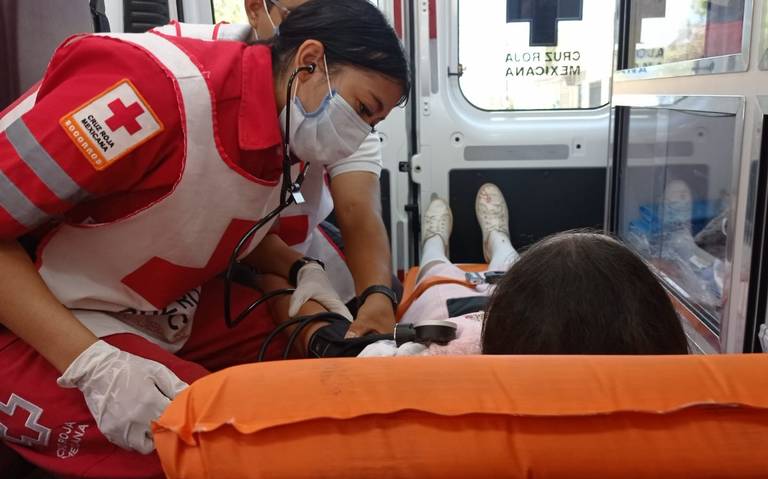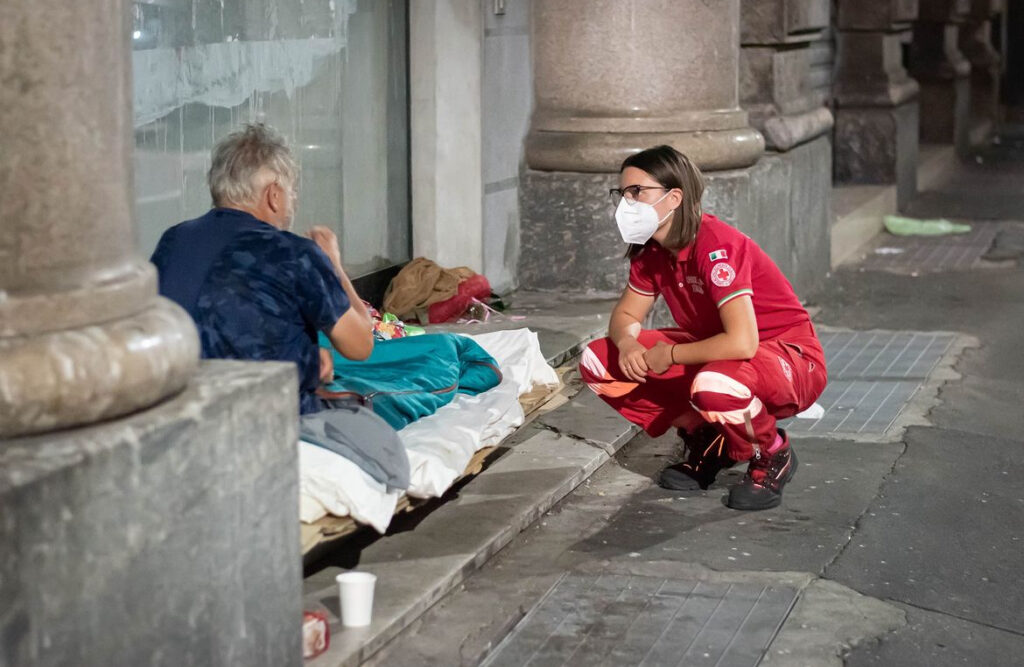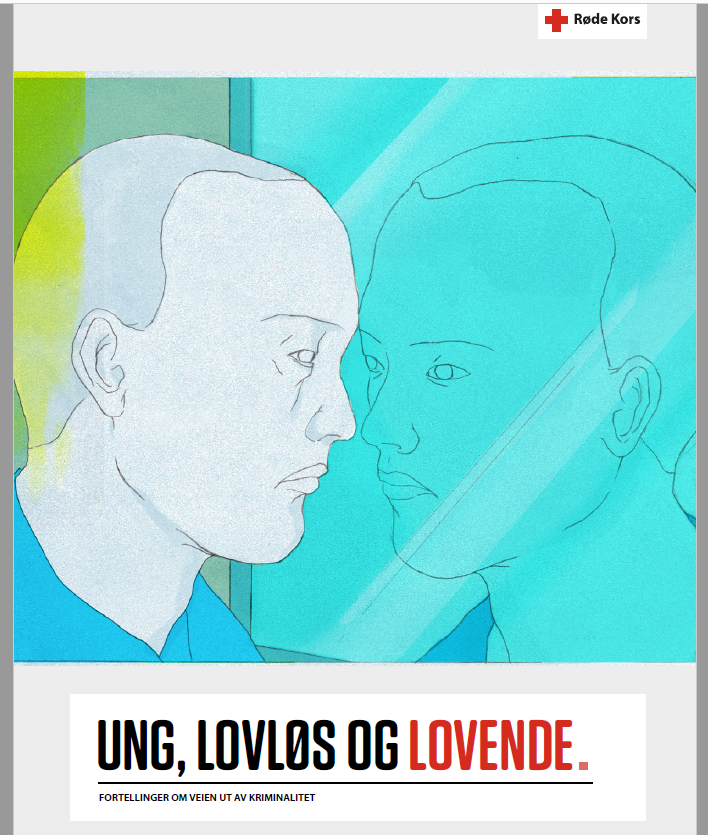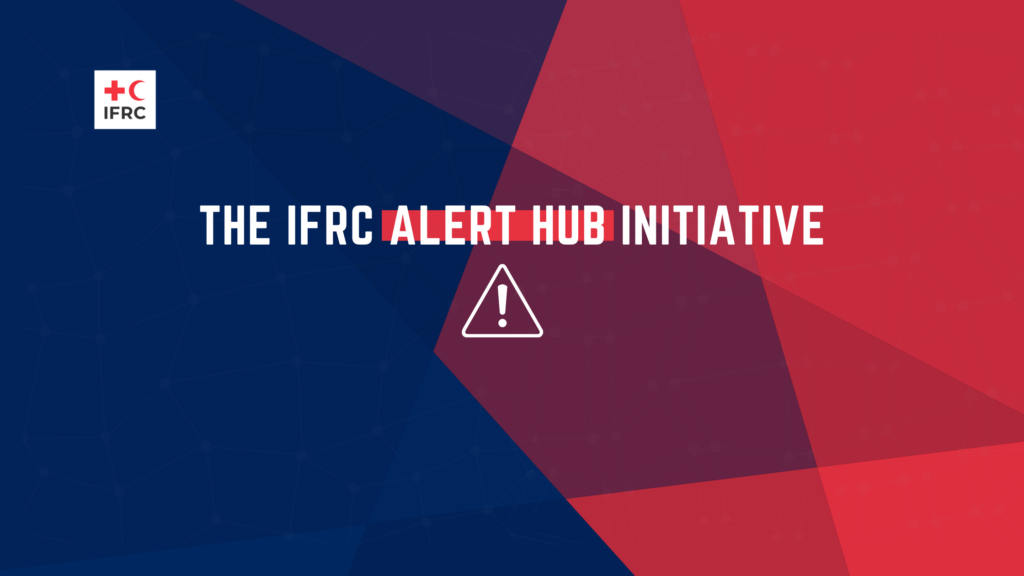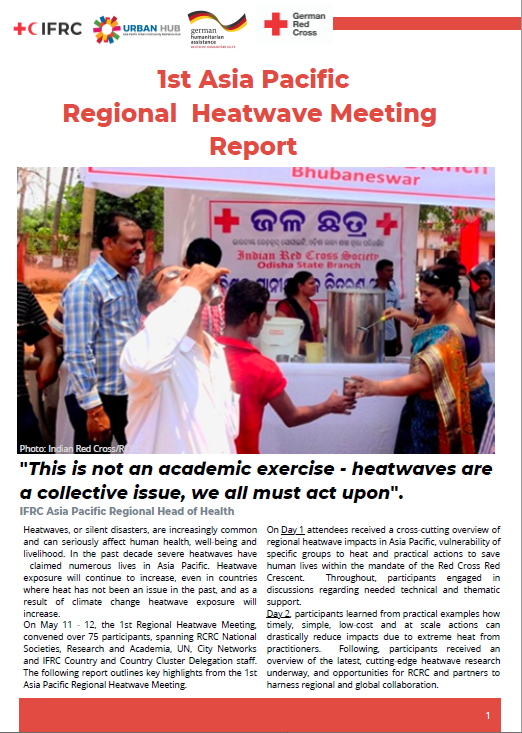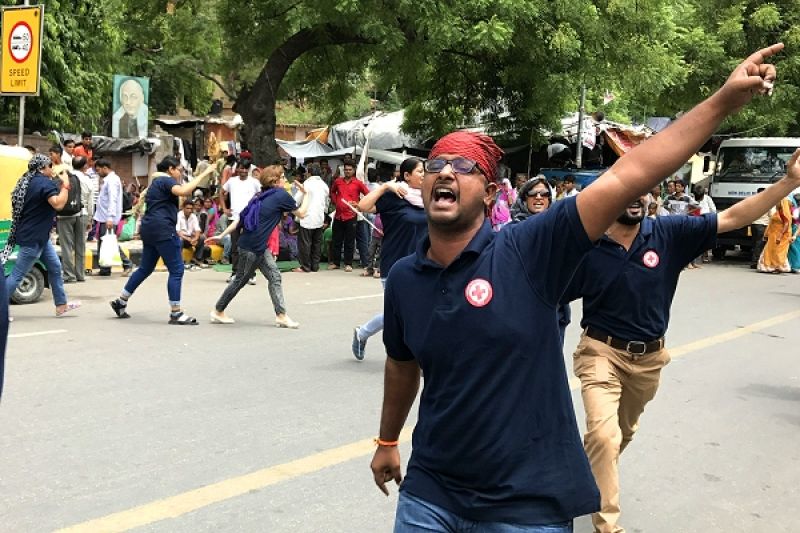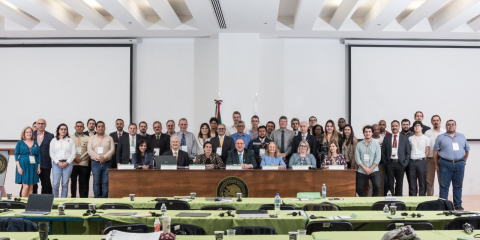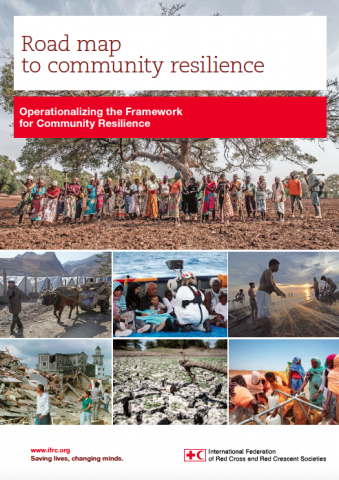Navigating the “dog days:” Experience of the Mexican Red Cross during 2023 heatwaves
2023 was officially named the hottest year on record, marked by scorching heat waves across the globe. With heat waves projected to increase in both frequency and intensity, preparedness and risk reduction become more crucial to mitigate impacts and save lives. The Global Disaster Preparedness Center (GDPC) asked Red Cross Red Crescent (RCRC) National Societies […]
Navigating the “dog days:” Experience of the Mexican Red Cross during 2023 heatwaves Read More »

